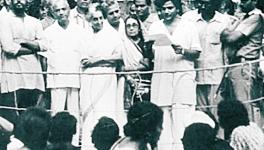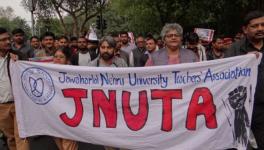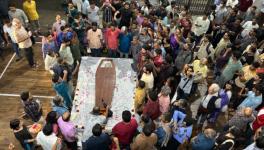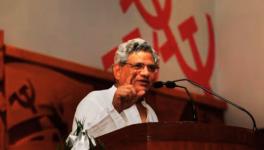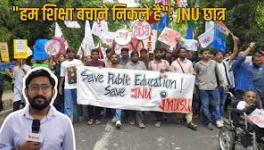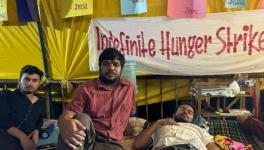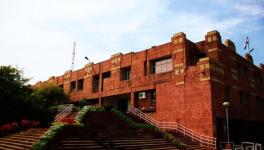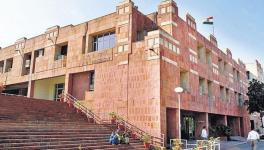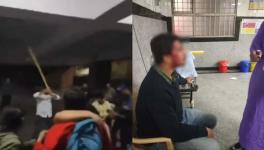JNU: Protest over Chargesheet Grows Louder, Social Activists, Academicians Show Support
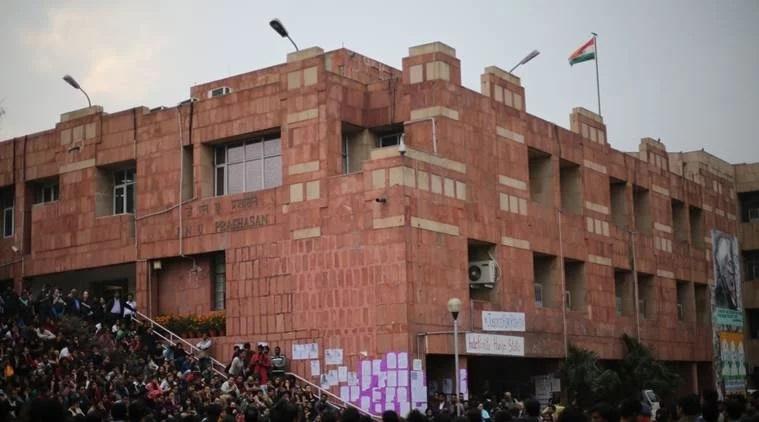
The protest against the chargesheeting of 48 teachers in Jawaharlal Nehru University (JNU) for participating in a strike intensified on Monday after noted social activists and academicians and various teachers’ associations of different universities came in support of the teachers. JNU administration has issued a chargesheet to 48 teachers invoking central civil services code for participating in a strike last year and sought a clarification in person and writing. Several teachers apprehend that the chargesheet may result into suspension of services.
Addressing a press conference in the national capital, eminent professor and parliamentarian Manoj Jha said that the action is aimed at silencing the academia and teaching community which has vociferously criticised the policies of the government. He said, "Credible criticism against the government policies including demonetisation came from academicians who were teaching in various universities. Other examples, say, from Hyderabad Central University, further proves that the dissent is coming out from the campuses and that's why the government wishes to invoke CCS codes in the university."
Apoorvanand, professor of Hindi at Delhi University, said that the JNU's teaching learning process became a role model for rest of the universities in the country. He said, "In this country, two universities represented the idea of a university, one Shanti Niketan and second JNU. Now, no university wants a sustained attack made on JNU. By sending out such chragesheet, the administration is asking teachers to relinquish the duties i.e. conveying their opinions in the field of their expertise. If an economist cannot comment on the economy, what do you think his duty should be."
However, Rajib Ray, president of Delhi University Teachers’ Association, argued that the charge sheet must be seen in line of assaults on the universities across the country. He said, "The attacks were seen from Motihari to Nagaland. Earlier, they had tried to impose CCS, but it was withdrawn after then Minister of Human Resources Development Prakash Javadekar said they do not intend to curb freedom of expression in JNU, DU or other university. But the agenda is back again. A few new central universities too tried to implement it through contract systems. We are determined to resist until this is withdrawn."
In another statement of solidarity, famous academicians including Akil Bilgrami, Gyan Prakash, Judith Butler and Gayatri Chakravorty Spivak said, "CCS rules being made applicable to the universities as these rules have the effect of putting a blanket ban on freedom of speech and expression in the classroom, in research papers, articles and in public life. In effect, they introduce censorship as a condition of service. Indian academics will not be able to engage in any critique of government policy and will also not fulfill their professional duties freely editorship and membership of editorial boards of reputed journals are a matter of prestige in many disciplines, but teachers will not be allowed to accept them without prior sanction."
Get the latest reports & analysis with people's perspective on Protests, movements & deep analytical videos, discussions of the current affairs in your Telegram app. Subscribe to NewsClick's Telegram channel & get Real-Time updates on stories, as they get published on our website.









